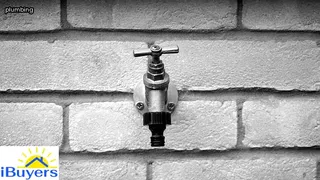The Pennsylvania Real Estate Seller Disclosure Law requires that home sellers provide an extensive disclosure statement to potential buyers. This document outlines the essential requirements of a sale, including any known defects or issues with the home.
It is important for both buyers and sellers to understand what the law entails so that they can be well-informed and make sound decisions when it comes to buying or selling a property. The disclosure statement must include a variety of details such as the age of the roof and any major repairs undertaken in recent years, any environmental hazards on the property, whether there are unpaid taxes due, and more.
In addition, it must disclose any legal disputes between parties involved in prior real estate transactions. Understanding all of these requirements is essential to help protect both buyers and sellers in their real estate dealings.

When selling a home in the state of Pennsylvania, both the seller and the real estate agent must provide certain information to potential buyers. This is done through a disclosure statement which provides buyers with essential details about the condition and history of the property.
Sellers are responsible for disclosing any known issues that may affect the value or livability of the home, such as water damage, pest infestations, lead paint, or other problems that could cause harm to its inhabitants. Agents must also disclose any information they have regarding these issues as well as any other material facts such as previous owners and whether or not work has been done on the property without proper permits.
In addition, agents should ensure that all pertinent documents related to ownership and title are available for review by buyers. These documents include deeds, mortgages, surveys, covenants and restrictions, among others.
It is important that sellers be thorough and honest when disclosing this information so that buyers can make informed decisions when purchasing a property in Pennsylvania.
When selling a home in Pennsylvania, sellers must provide certain information to potential buyers. This includes details about the physical condition of the property and any known defects.
The seller must also provide information on any recent repairs or renovations that have been completed, including any permits obtained for such work. The seller must disclose whether they are aware of any environmental hazards or safety issues related to the property, as well as other information such as zoning restrictions and applicable homeowner's association fees.
Additionally, the seller must list what appliances and fixtures come with the sale of the home, including any warranties or guarantees associated with them. Lastly, sellers are required to make sure buyers are aware of any liens or encumbrances on the property that could affect ownership or transfer of title.
It is important for sellers to ensure that all relevant information is disclosed up front in order to protect both parties from potential legal disputes down the line; failure to do so can lead to serious consequences for everyone involved.

When it comes to the disclosure statement for home sellers in Pennsylvania, one of the essential requirements is to disclose any known defects that have developed after closing. Who is responsible when these issues arise? Generally, any defects that occurred prior to closing are the responsibility of the seller.
However, if it's determined that a defect has occurred after the sale, then it is typically up to the buyer. It's important for buyers and sellers alike to be aware of their rights and obligations when it comes to post-closing defects in order to avoid any potential disputes or misunderstandings.
Buyers should make sure they understand what types of repairs and maintenance costs they may be responsible for down the road while sellers should take care in disclosing all necessary information upfront. By understanding who is responsible for post-closing defects, both buyers and sellers can ensure a successful transaction with minimal disputes.
Recent trends and news on the Pennsylvania Real Estate Seller Disclosure Law have revealed the essential requirements of a Home Seller's Disclosure Statement. According to state law, Home Sellers must provide potential buyers with an accurate account of any known issues or defects in the property before it is sold.
The Seller Disclosure Statement should include any material facts that could impact a buyer's decision to purchase the home, such as mold, water damage, structural repairs or other problems that could affect health and safety. Additionally, sellers are expected to disclose any knowledge they may have regarding zoning laws that could influence the buyer's use of the property.
In order to remain compliant with state law, sellers should review recent changes to real estate regulations in Pennsylvania and have their disclosure statement properly reviewed by an experienced lawyer prior to listing their home on the market.

When it comes to understanding the essential requirements of a Pennsylvania home seller's disclosure statement, further reading can be an invaluable resource. As such, there are numerous sources from which to gain additional knowledge about Pennsylvania real estate seller disclosure law.
The Pennsylvania Association of Realtors provides an FAQ page that covers various aspects of the state's disclosure law, such as its definition and scope. Additionally, the Pennsylvania Department of State publishes a booklet entitled 'Real Estate: Disclosure by Seller' which contains important information on the state's disclosure requirements.
Finally, both the Home Selling Guide and Home Buying Guide published by The Legal Intelligencer provide comprehensive overviews of buyer/seller rights and responsibilities in Pennsylvania. These resources can help ensure that potential home sellers are fully informed when preparing their seller’s disclosure statement in accordance with Pennsylvania state law.
It is essential for buyers and sellers of property in Pennsylvania to understand what must be disclosed on a home seller's disclosure statement. There are certain requirements that both parties must meet, and understanding these regulations allows for informed decisions to be made regarding the sale or purchase of a home.
Knowing the details about what needs to be included in a disclosure statement can save buyers and sellers time and money, as well as alleviate potential issues down the road. It is important to make sure that all necessary information is disclosed so that buyers are aware of any potential problems with the property they are considering purchasing.
Additionally, having an accurate disclosure statement ensures that sellers are not held liable for any undisclosed issues after closing. Being aware of each step of the process can help buyers and sellers understand their rights and responsibilities when it comes to buying or selling real estate in Pennsylvania.
Researching the essential requirements of a home seller's disclosure statement can provide peace of mind when making such a significant decision.

When it comes to buying a home in Pennsylvania, both buyers and sellers should be aware of the essential requirements of the state's Seller's Disclosure Statement. This legally binding document is designed to provide buyers with information about any known issues or defects with the property they are interested in purchasing.
To ensure that potential buyers can make an informed decision regarding the purchase of their new home, it is important for sellers to accurately disclose any material flaws or defects in their disclosure statement. By doing so, sellers protect themselves from liability and limit any potential disputes that may arise between them and the buyer over undisclosed issues.
Additionally, making sure all of the required fields are completed helps to ensure that buyers receive all of the important details about the property they are considering purchasing. In order to ensure that both parties have a clear understanding of what is expected when completing a seller's disclosure statement in Pennsylvania, it is critical for buyers and sellers alike to familiarize themselves with its requirements.
When selling a home in Pennsylvania, it is essential for a seller to provide the buyer with a disclosure statement. This is required by the Pennsylvania Department of State, along with other real estate regulations, to ensure that buyers are aware of any potential issues with the property before closing.
The disclosure statement must be given to the buyer before signing or making an offer on the property and should include information about past repairs and maintenance, any existing structural damage, defects in systems or appliances, and hazardous materials such as mold or lead paint. In some cases, sellers may need to disclose additional information as determined by their local municipality.
As such, it is important for sellers to understand all of the essential requirements of their state's disclosure statement in order to avoid potential legal problems down the road.

When selling a home in Pennsylvania, it is important to understand the necessary requirements of disclosure statements. A seller's disclosure statement is an essential part of the transaction which must be completed accurately to protect both the buyer and seller.
This document serves as a valuable tool for buyers to assess potential risks associated with their purchase. It also acts as an agreement between the two parties that any facts or issues disclosed are true and accurate.
Analyzing the meaning behind this form is key to ensuring that all parties involved are fully informed before entering into a contract. When completing a disclosure statement, it is important for sellers to provide full and honest answers, including any existing known problems with the property such as structural defects or environmental hazards.
Buyers should review this information carefully to make sure they understand each component of the form and its implications on their purchase. In addition, it may be beneficial for both parties to seek legal advice when dealing with matters related to this document in order to ensure they are adequately protected throughout the process.
Under Pennsylvania law, a home seller must provide potential buyers with a disclosure statement that outlines the condition of their property. This document is intended to provide buyers with detailed information about the property so they can make an informed decision about whether or not to purchase it.
It is essential for home sellers to understand what their disclosure statement does and does not do in order to ensure they are meeting their legal responsibilities. The seller's disclosure statement must include information about any known defects or repairs needed, but it does not guarantee that there are no problems with the property and should not be used as a substitute for professional inspections.
Additionally, while the seller's disclosure statement must contain accurate information at the time of sale, it may not include information on changes or events that occur after the sale is completed. Understanding these distinctions is key to providing buyers with sufficient information to make an informed decision and ensuring that sellers fulfill their obligations under PA law.

When selling a home in Pennsylvania, it is important to understand when the state's required disclosure form must be submitted. A seller's disclosure statement must be completed and signed by the seller before an offer can be accepted.
In most cases, this statement should be included with the sales contract, though certain counties may require it to be provided separately. In addition, if special circumstances are present such as a dispute between parties or when there are environmental concerns, additional disclosure forms may need to be completed as well.
It is important for sellers to read and understand all of the forms that are required for their particular sale and have them completed in a timely manner to ensure that all documents necessary for the sale of their home are appropriately submitted.
When selling a house in Pennsylvania, it is important to understand all that must be disclosed in the home seller’s disclosure statement. This document is meant to provide potential buyers with an accurate description of the property, including any known issues or defects.
The state of Pennsylvania requires sellers to provide full disclosure in areas such as structural integrity and material defects, environmental concerns, building permits and code compliance information, appliances and fixtures, plumbing and electrical systems, roofing condition and more. Homeowners should also include details about any prior damage related to fire, water or weather incidents.
Additionally, sellers should provide a list of items not included in the sale of the home that must be addressed prior to closing. By thoroughly understanding what must be disclosed when selling a house in Pennsylvania, sellers can make sure their disclosure statement meets all essential requirements for a successful real estate transaction.

When selling a property in Pennsylvania, it is essential for the seller to provide a home seller's disclosure statement. Non-disclosure of any pertinent information can have serious legal ramifications for the seller.
It is important to investigate the requirements of the Pennsylvania home seller's disclosure statement and understand how not disclosing certain details can impact a property sale. A full disclosure of all conditions and events that may affect the property or its value must be included in the statement.
This includes issues such as water damage, structural problems, prior renovations, or any potential environmental hazards. The intention of providing this documentation is to protect both buyer and seller from possible legal repercussions due to incomplete or incorrect information being provided at the time of sale.
Failing to fill out a complete home seller's disclosure statement or omitting relevant details can lead to costly lawsuits against the seller in Pennsylvania, so it is critical that they are fully aware of their obligations when selling a property in this state.
Navigating through the process of understanding Pennsylvania's real estate seller disclosure law is essential for any home seller in the Keystone State. The disclosure statement is a legal document that must be provided to potential buyers during the transaction and outlines significant facts about a property.
It includes information on structural issues, water damage, hazardous materials, zoning ordinances, neighborhood disputes and more. When filling out the form, it is important to be honest and accurate as buyers may use this information to decide whether or not to purchase the home.
As a seller, it is helpful to review all local laws with an attorney as penalties for failing to provide accurate information can be severe. Additionally, familiarizing yourself with your state’s requirements can help ensure that you are providing potential buyers with all necessary information and avoiding any misunderstandings during negotiations.

Falling short of Pennsylvania home seller disclosure statement requirements can have a significant financial impact. When selling a home in the state, it is critical to understand the associated regulations and ensure compliance.
In order to identify these essential needs, buyers and sellers alike should seek legal counsel or consult the PA Department of State website for reference. The real estate seller disclosure laws provide an outline of information that must be disclosed prior to any residential sale.
This includes items such as property title history, zoning ordinances, structural condition, and past or present disputes between neighbors. Additionally, if any improvements were made to the residence or surrounding grounds after ownership began, those must be documented and reported as well.
Failing to meet these obligations can lead to legal action from prospective buyers and hefty fines from the state government. All parties involved in the transaction need to have a clear understanding of the disclosure statement expectations in order to protect themselves from costly consequences down the road.
Selling a home in the state of Pennsylvania is no easy task and it is important for sellers to understand their legal obligations when it comes to disclosing any material defects that may exist. Failure to do so can be costly and have serious repercussions for sellers.
In order to protect buyers and inform potential purchasers of what they are getting, the law requires every seller to provide a disclosure statement which details all known defects in the property. These essential requirements must be adhered to in order for sellers to avoid any potential issues down the line.
It is important for sellers to understand the nuances of Pennsylvania’s disclosure laws, such as what constitutes a “material defect” or whether there are any exceptions that apply. Knowing these details can help prevent any potential issues with buyers who find out about undisclosed problems after closing on the home.
Sellers should also be aware of their rights if they believe that buyers have misrepresented information included in their own disclosure statements as this could lead to further complications. Taking the time to understand these regulations and being proactive about disclosure is essential for any seller looking to successfully transact within Pennsylvania’s real estate market.

When it comes to understanding the essential requirements of a Pennsylvania home seller's disclosure statement, there are many common misconceptions about the real estate seller disclosure laws and best practices for compliance. It is important to understand that the seller must disclose any known material defects in the property to potential buyers, including any past or present environmental hazards such as lead paint or asbestos.
Additionally, sellers must complete an accurate disclosure form that includes information on all repairs and improvements made to the property since its construction. Knowing what needs to be included in this document can help reduce potential liability for sellers and increase transparency for buyers.
Furthermore, it is also essential for sellers to provide copies of relevant documents such as inspection reports, certificates of occupancy, and contractor invoices prior to closing on the sale of their home; this will ensure that all parties involved have a clear understanding of what they are signing off on. Lastly, Pennsylvania law requires sellers to adhere to certain protocols when selling their home which may include providing access for viewings or having a licensed real estate agent represent them during negotiations with buyers.
Understanding and following these regulations can help ensure that both parties have a smooth and successful transaction.
Exploring whether or not current conditions exempt certain sellers from having to comply with the Pennsylvania Real Estate Seller Disclosure Law is essential for home sellers in the state. Knowing which conditions are considered exempt from the law can help ensure that sellers are compliant and avoid potential legal issues.
It is important to note that exemptions may be based on a variety of criteria, including whether or not the seller is an owner occupant, if the property has been rented more than 18 months prior to sale, and if all parties involved are related by blood or marriage, among others. In addition, understanding when and how required disclosures must be made can be key to satisfying all applicable regulations.
Although exact requirements vary depending on a number of factors, it is critical for any seller to be aware of their responsibilities when it comes to disclosing information about their property prior to sale.

Examining the experiences of others who have encountered problems while selling property in Pennsylvania can help to provide insights into the essential requirements that must be included in a home seller's disclosure statement. Learning from the experiences of those who encountered issues can give prospective sellers an idea of what they may face and the steps they need to take to abide by the law.
It is important for sellers to take into account any hidden or latent defects that could affect a buyer's decision, as well as any potential environmental hazards. Home inspections, surveys and other resources are available to help sellers navigate the process with clarity and confidence.
Understanding these requirements and taking into consideration advice from those who have sold property in PA can help ensure a smooth sale process and protect both buyers and sellers.
When selling a home in Pennsylvania, it is essential that all sellers understand the disclosure requirements set forth by the state. As a seller, you must provide potential buyers with a complete and accurate disclosure statement of any material facts or defects related to your property.
This includes any information about the condition of the house, common areas, outbuildings, and other important features. Additionally, you must disclose any environmental hazards such as lead-based paint or asbestos that may be present.
It is also important to let prospective buyers know of any past legal disputes involving your property or any nearby areas that could affect their ownership of it. By providing full disclosure in your statement, you will ensure that all parties involved are aware of the risks associated with purchasing your home, thereby protecting both yourself and the buyer.

When selling a home in Pennsylvania, the seller must provide a disclosure statement that outlines any known material defects of the property. Buyers have the right to expect full disclosure of information related to the condition of the property, and this requirement is outlined in Section 712 of the Pennsylvania Real Estate Seller Disclosure Law.
Essential information sellers must disclose includes: structural issues such as foundation or roofing problems; plumbing and electrical systems; environmental hazards such as lead-based paint or asbestos; as well as any other conditions that may affect the value of the property. Buyers are entitled to know about any alterations done to a home, including permits for work completed, and if there were any disputes with neighbors or homeowner associations.
Furthermore, it is important for sellers to be transparent about any health-related issues that could impact a buyer’s decision to purchase the property. Sellers must also disclose if their home has been used for rental purposes or has been subject to foreclosure proceedings in order for buyers to make an informed decision when purchasing.
Understanding all aspects of a Pennsylvania Seller Property Disclosure Statement is essential in helping buyers make an educated decision on whether or not to purchase a home.
When it comes to completing a seller property disclosure form in Pennsylvania, it is essential to be aware of the issues that are required to be disclosed. According to the Pennsylvania Department of State, home sellers must disclose any known material defects or conditions regarding the property.
This includes but is not limited to any existing problems with the roof, plumbing, heating and air conditioning systems, electrical wiring and fixtures, lead paint risks, termite damage or infestation, water damage or flooding, structural issues and any knowledge of hazardous materials such as asbestos or radon gas on the property. Additionally, sellers must disclose if there have been any disputes between neighbors over boundaries or encroachments that may affect the property.
By being aware of these essential requirements when completing a seller property disclosure form in Pennsylvania can help ensure a smoother transaction for both parties.
In Pennsylvania, home sellers must disclose any and all relevant information to potential buyers in order to legally complete the sale of their property. This includes disclosing any previous inspections that have been conducted on the property.
Sellers are required to provide a Seller's Disclosure Statement that outlines the essential requirements for selling their home. The statement must include whether or not a prior inspection has taken place and if so, what was found during that inspection.
Buyers should always ask for this disclosure statement before making an offer on a property since it will help them make an informed decision about the purchase. By uncovering the essential requirements of a Pennsylvania Home Seller's Disclosure Statement, potential buyers will be able to ensure they are getting an accurate picture of the condition of a property before they decide to buy it.
A: When selling a house in Pennsylvania, you must disclose the current property taxes due; your homeowner insurance coverage; any known issues with the condition of the property; and whether or not lead paint is present.
A: When selling a house in Pennsylvania, you must disclose any known material defects in the septic system to the buyer.